Common colds, although “common”, still take getting used to—even if most of us have at least a few colds a year. Viruses contribute to most of the colds you get every year, but in some cases, bacteria are the culprits; either way, colds are still an inconvenience due to the buildup of mucus and phlegm in the respiratory system and should be remedied to make you feel better.
Your instinct is to immediately purchase medication to clear out the mucus in your system. However; meds may not always be effective in helping resolve cold symptoms. It might be wise to consider non-Rx alternatives for mucus and phlegm relief. Here is a list of the best herbs and supplements for mucus and phlegm relief.
List of Herbs for Mucus and Phlegm Relief
1. Peppermint
One of the most common herbal mucus and phlegm relief supplements is peppermint or peppermint oil. We can attribute this herb’s mucus-thinning and respiratory tract-relaxing mechanism to its menthol, menthyl acetate, cineol, methanofuran, limonene, pinene, and several additional compounds. Menthol and these additional compounds act as a decongestant and also help fight off pathogens.
Peppermint is recommended as an alternative to cough and cold medicines, even by reputable associations like Autismone. According to Autismone, peppermint is a good alternative to cough medicine since it is able to thin mucus, loosen phlegm and soothe dry or sore throats. Peppermint teas or xylitol-based peppermint candies are recommended for coughs.
You can diffuse peppermint oil in a humidifier or directly inhale peppermint oil from the bottle. Other ways to use peppermint for congestion are: place a drop of the oil under the tongue, place 3 drops of peppermint oil on a damp warm cloth and place it on your chest, or rub the oil directly to your chest when needed. A few drops of peppermint oil can also be gargled in salt water to help a dry throat and help thin mucus.
2. Eucalyptus
Another well-loved cold or cough relief is the eucalyptus plant. Eucalyptus oil is a common addition to topical cold remedies, oral lozenges, and a common diffused oil for congested sinuses and thinning mucus. The Eucalyptus plant’s effect in helping clear out mucus-laden airways is backed by sound science. According to one study, Eucalyptus oil was able to cause a significant change in lowering the viscosity of mucus. This makes the oil an excellent addition to future products aimed at ridding the respiratory system of mucus. Eucalyptus can be taken in liquid form or preferred method of cough drops.
3. Licorice Root
Licorice root has a robust history when it comes to medicinal properties. This plant has applications dating back millenni. It has been used in ancient medicine of various world cultures. For instance, Licorice is used in India’s Ayurveda as an expectorant, anti-inflammatory, anti-spasmodic, a demulcent and as a reliever for irritated mucous membranes. In the Greek and Arab culture, Licorice is prized as a cough and asthma reliever.
Although effective, according to the University of Maryland Medical Center, Licorice use should be limited to only a week when self-medicating or up to 4 to 6 weeks as advised by the doctor. Dried licorice root can 1 to 5 g can be boiled (as a decoction) or infused and taken 3 times daily, or you can use Licorice 1:5 tincture, 2-5 mL or Licorice standardized extract 250 to 500 mg 3 times a day.
4. Cannabis
Sources indicate that Cannabis (yes, Marijuana!) is able to loosen up mucus in the sinuses and is utilized as a bronchodilator. According to anecdotal experience with Cannabis, the plant can help relieve asthmatic symptoms. Allegedly, individuals using Cannabis for their respiratory issues were able to spot improvements in their overall lung condition. Some sources suggest the use of cough drops infused with cannabinoids or Cannabis medicated lozenges whenever available or whenever legal. In other instances, individuals may use teas with Cannabis extracts to help in relieving colds, coughs, and inflammation.
5. Coltsfoot
Another example of a mucus-thinning or respiratory function enhancing plant is Coltsfoot, a plant known for its angular-teethed, hoof-shaped leaves. This plant’s leaves are renowned for its healing properties for bronchitis, pertussis or whooping cough, and even asthma. Because of this plant’s pain-relieving and inflammation preventing substances, Coltsfoot leaves are also used for treating sore throat, hoarseness, and cough.
There is no standard dosing for Coltsfoot, but the plant is recommended in 4.5 to 5 g/day in patients. However, more studies are needed to establish the safety and efficacy of this plant for long-term or internal use.
6. Osha Root
The plant Osha is native to several parts of the United States. This herbal plant contains antibacterial and antiviral compounds that are discovered to be effective in relieving the patients of respiratory diseases. Osha root is an herbal treatment used for flu, bronchitis, and pneumonia because it is able to relieve inflammation symptoms in patients, thus being able to thin out mucus because of its anti-inflammatory effect.
Osha root is usually dried and crushed and made into a tea or is mixed with honey and taken as a cough syrup. It is taken as soon as respiratory inflammation symptoms first surface.
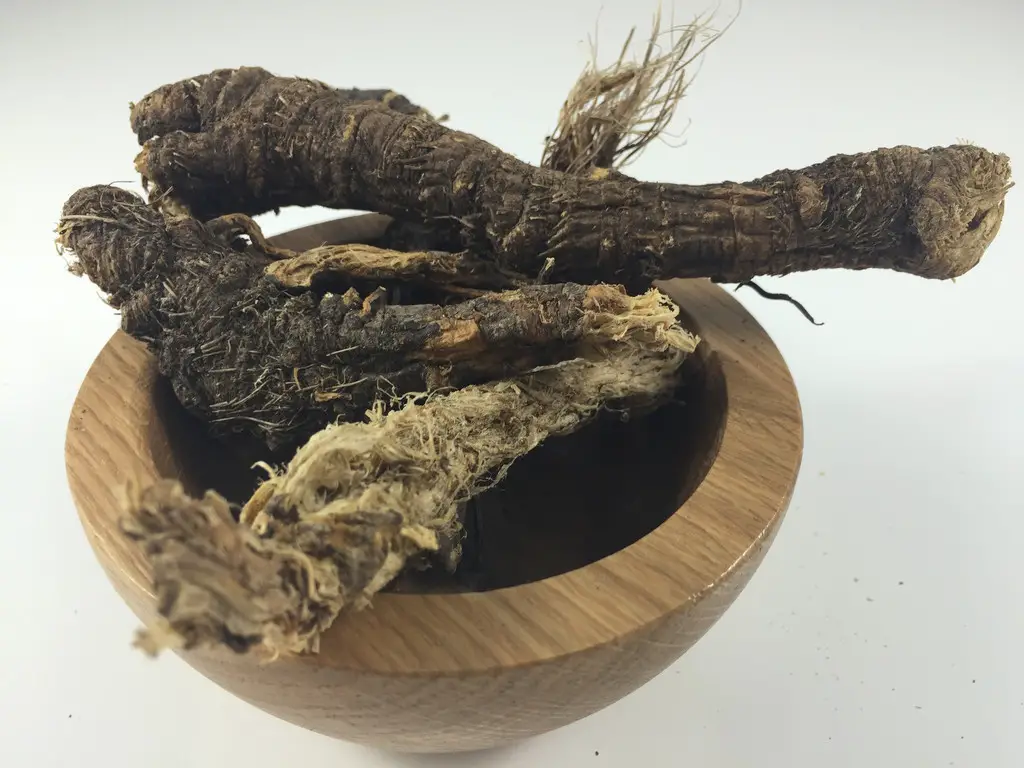
7. Oregano
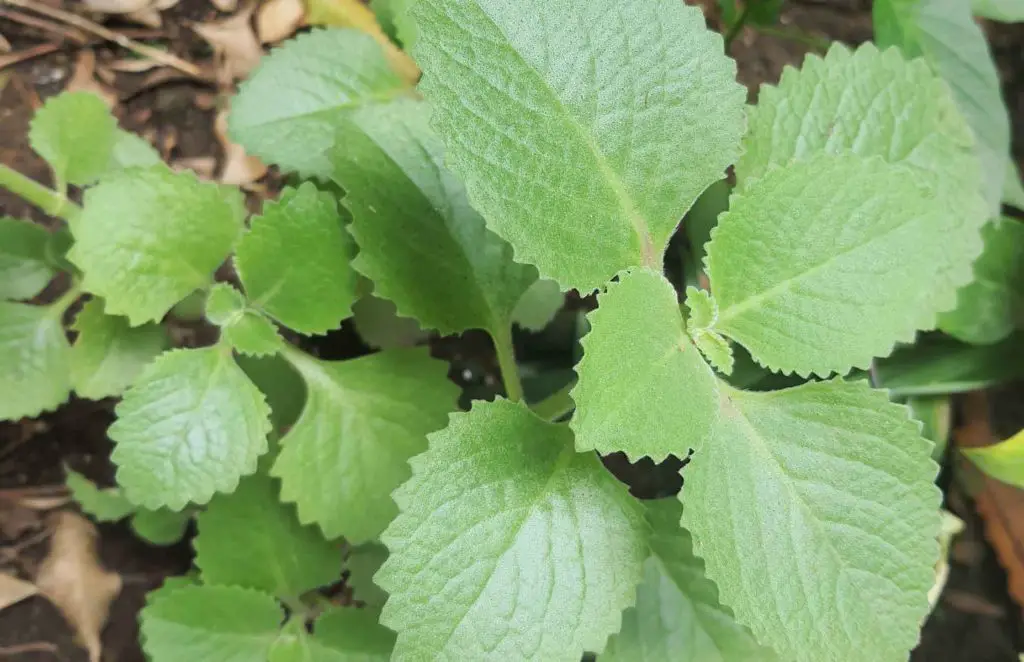
Amongst the best natural treatments for coughs or colds during the flu season is the oregano plant. It is renowned as an expectorant, antibacterial, anti-inflammatory, and an antioxidant effective in helping patients get relief from respiratory diseases like the common coughs and colds. Oregano contains the antimicrobial component carvacrol, the immune system booster Vitamin C, the antifungal and antiseptic thymol component (that helps detoxify the lungs), Vitamin E, and even component rosmarinic acid with antioxidant properties. To use oregano for coughs and colds, fresh oregano leaves are boiled in 3 cups of water for about 10-15 minutes. Half a cup of the decoction is usually taken 3 times a day for mucus relief. You can also juice the leaves instead of boiling them—one tablespoon of the extract can be taken every hour to relieve coughs, colds, asthma, and even dyspepsia.
8. Thyme
Another herbal cough and cold treatment is the herb thyme. Due to it’s powerful antiseptic components, this plant is used for managing respiratory system-related illnesses like cough, sore throat, and bronchitis, but it is also relevant in helping give relief to diarrhea, gastritis, upset stomach, colic, arthritis, gas pain, and several skin disorders. A cup of thyme tea (using half a teaspoon of thyme leaves with honey) is taken for cough relief.
9. Lobelia
Called “asthmador” in traditional Appalachian medicine, this herbal medicine is able to naturally thin mucus and phlegm. Due to this plant’s ability to naturally help in respiratory illnesses, Lobelia is used traditionally for asthma treatment, bronchitis, apnea, and whooping cough. Lobelia thins mucus and helps individuals to easily expectorate phlegm from the lungs. Lobelia is taken in tincture, liquid extract, dried herbal capsule, and tea form.
10. Mullein
Another ancient drug for inflammation and lung-related diseases is the plant Mullein. The extract (oil) of this plant’s flowers is used for relieving coughs, asthma, and even diarrhea, burns, gout, and hemorrhoids. Mullein can also be taken as a tea to improve dry cough, bronchitis, tonsillitis, and sore throat—mullein is effective because it contains a host of powerful antioxidants that help relieve inflammation and also help thin mucus in the lungs. Apart from decoctions, Mullein is also smoked by some to help open up the respiratory tract, although smoking Mullein is the least effective way to use the plant for respiratory concerns.

11. Elecampane
Elecampane is a lung-cleansing, mucus-thinning plant traditionally used by Native Americans for a host of respiratory diseases. This plant is known for its antimicrobial and restorative properties, making it an excellent herbal treatment for coughs, asthma, colds, and even tuberculosis. Elecampane roots are used to make a syrup and mixed with honey, but this plant is also taken in tincture, powder, or decoction form (boiled with water).
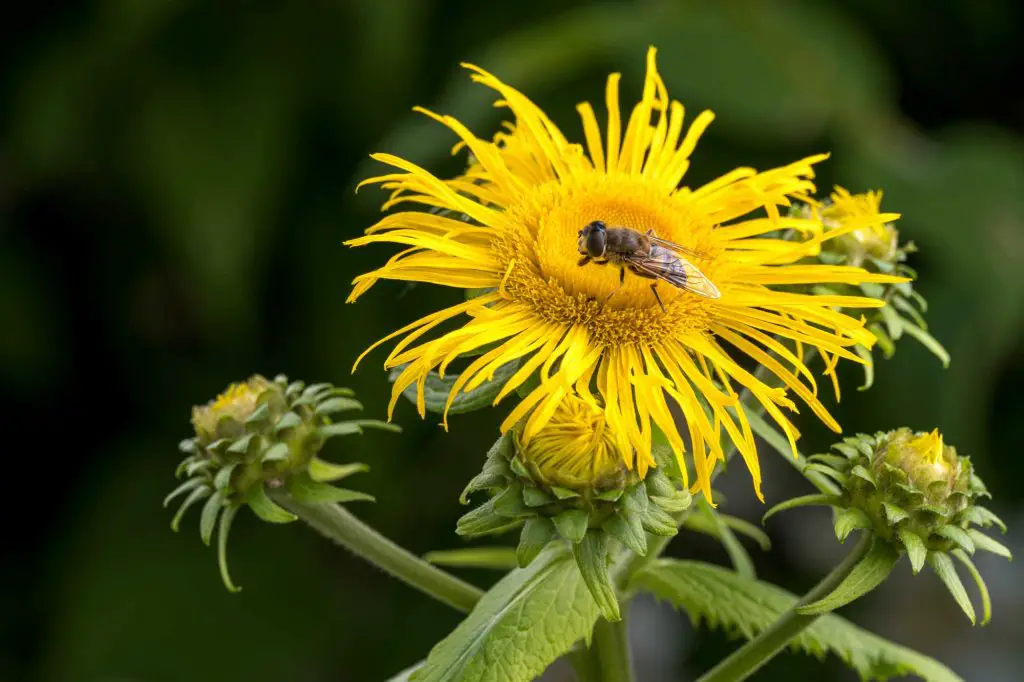
12. Chaparral
This plant’s leaves are used to make tea or tinctures for cough relief. Chapparal contains antioxidants and is an excellent herbal medicine for individuals with respiratory diseases since the plant aids in healing the inflamed tissues in the lungs and also helps expectorate phlegm and thin mucus. Despite this plant’s effect, though, the authorities are a bit concerned about the safety concerning the use of this plant, so before taking Chaparral, make sure you consult your doctor.
13. Lungwort
Lungwort leaves are boiled with water and taken as a tea for clearing the airways and for the relief of respiratory conditions. This plant contains flavonoids like allantoin, tannic acid, and quercetin—powerful antioxidants that contribute to the plant’s healing and restorative properties. Lungwort is also used for better digestion and urinary tract infections and is used as an antioxidant and a skin treatment for minor wounds and several skin conditions (eczema, burns, ulcers, and others).
14. Plantain
Plantain (alternatively called as Plantago) brings about a host of benefits, especially when used as a natural remedy. One tablespoon of Plantago seeds and husks are added to boiled water to make a decoction and the mixture is taken several times a day to relieve individuals of constipation, reduce phlegm, treat urinary tract infections, soothe the throat, and also provide relief for skin infections. Plantago or Plantain leaves, when taken as an herbal tea, can help open up the airways during a cold or flu and help expel phlegm and suppress cough in patients suffering from dry cough. This makes it one of the sought-after herbal remedies for respiratory system improvement in affected individuals.
15. Sage
Sage is excellent for cooking but also has its application as a natural home remedy for respiratory illnesses. Sage is able to thin mucus and help expel phlegm. It also helps soothe sore, inflamed throats due to its anti-inflammatory and anti-bacterial properties. Steep half a teaspoon of dry sage alone or with dried thyme, fresh lemon zest, lemon juice, and honey in 1½ cups of hot water for up to 15 minutes and take as a tea. Sage tea can also help suppress cough and relieve sore throat.
References:


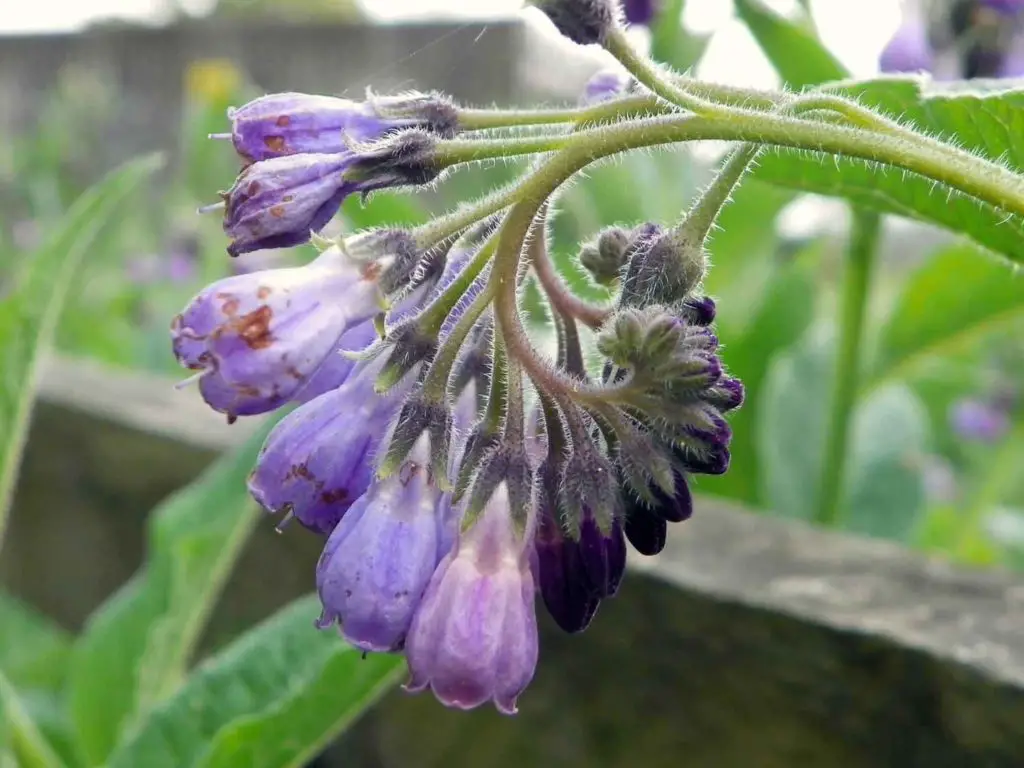
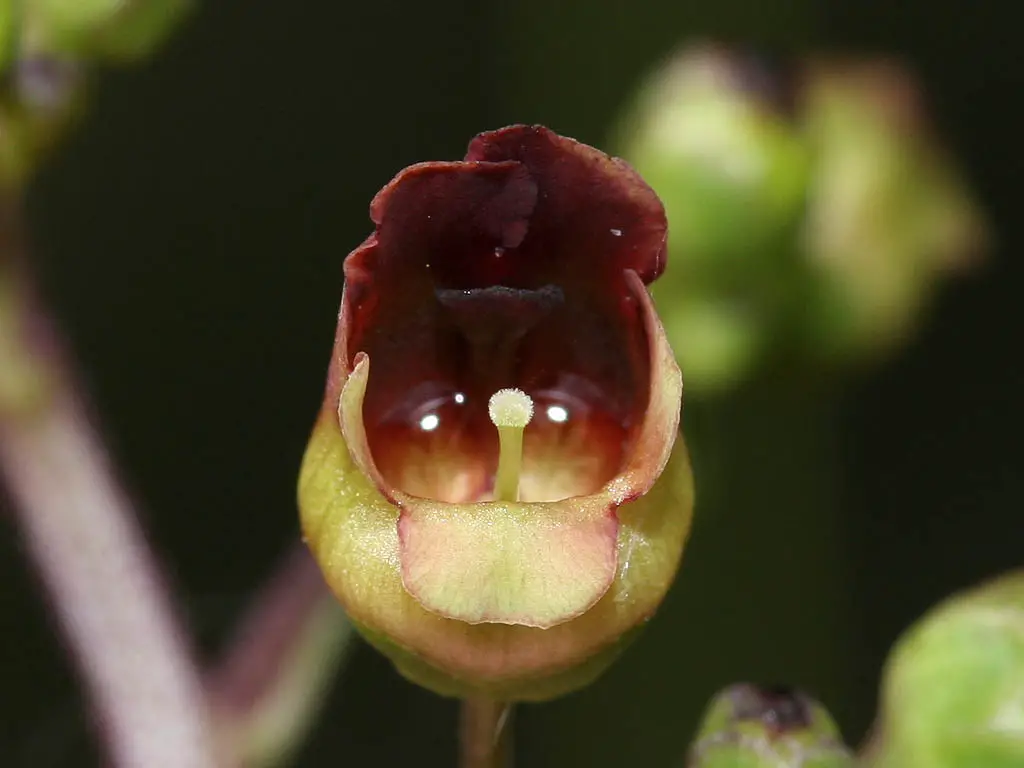
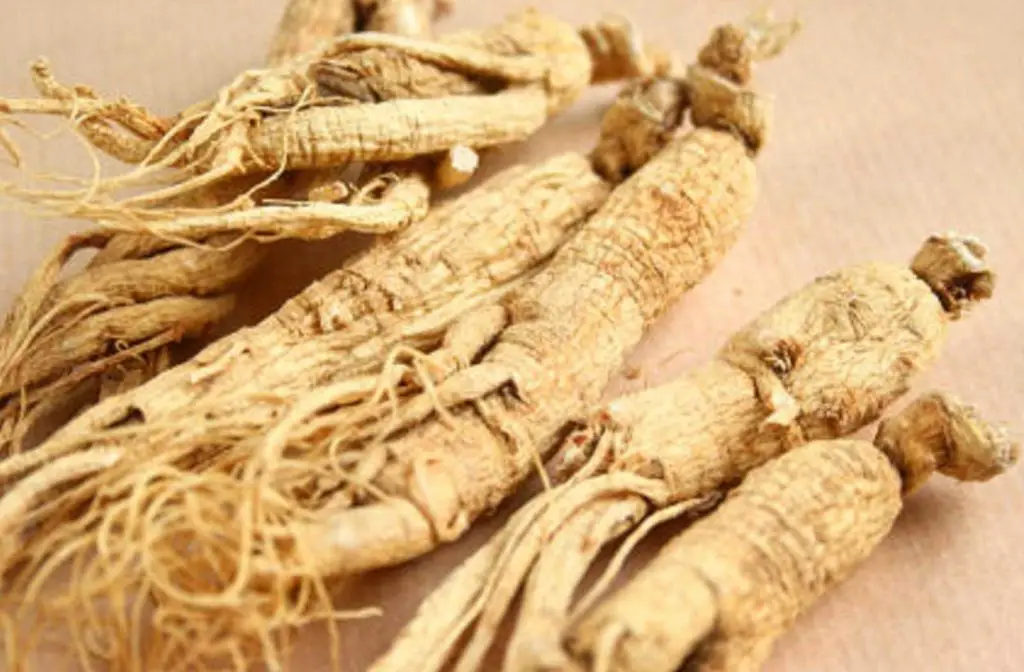
I want to know where I can buy the seeds for these plants I would like to make a herbal garden.
Hi Ray,
You can buy seeds locally or even on Amazon. Just search for the specific seed you’re looking for.
Darcy – any of us with autoimmune diseases are searching for a natural way to alleviate our health problems. My concern is that although many of these weeds and herbs facilitate healing, are they for human consumption or animal consumption? Have you seen a marked improvement in your own health? I believe even the pharmaceutical companies started out with plant based medicines or tree bark or root. I am concerned that any medicine from the bark of a tree, is too strong for humans and is why most of our pharmaceuticals have side effects. Can you let me know what your experience is?
Hi Martha,
Those are valid concerns. Herbs have their uses as do drugs. I’m not anti-pharmaceutical. Some ailments 100% need pharmaceutical intervention, mine ended up being that way after taking a natural approach for a number of years.
Hi Martha,
You are correct in that over 60% of pharmaceutical drugs were produced by isolating the most active constituent in a plant and then that became the basis for that drug. The side effects that come along with those pharmaceutical drugs are not because the plant is too strong for human consumption, but rather because they removed many other constituents contained in the plants that help to make them a balanced medicine. Most of the plants that were used as the basis for these pharma medicines do not produce the same side effects that the pharmaceutical versions do because they contain these other nature-balanced constituents. Nature is far more intelligent than we realize.
Yes, some plants do have negative side effects for some, are inappropriate for certain conditions, and more often interact with pharmaceutical medications. However, many do not as well. I always recommend working with a knowledgable herbal practitioner to figure out what herbs work best for you and which you should perhaps avoid. Starting slow with any herbal regimen is always a good idea as well, and then moving up to a normal dosage.
Thank you for your great input, Jenny!
Hello, I really appreciate the list of herbs you have here. Thanks for thais.
It is probably also worth noting that currently Osha is only wild crafted. It grows in high desert regions and is notoriously difficult to germinate and the roots are slow growing and we should all be more contentious about promoting the wide scale use of plants like this, regardless of their efficacy – as you pointed out there are many plants that are common and easy to grow that have similar benefits.
Also I am curious about the photo listed with oregano – what variety is that? I know there are many different types, but I have never seen one that looks like that. Oregano is a tough little plant that thrives in dry conditions and has small thick compact leaves. The plant in the photo does not look like an oregano to me… but I’m always curious to learn about new things.